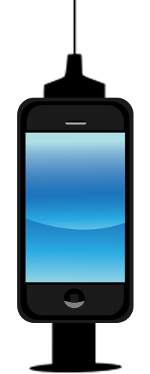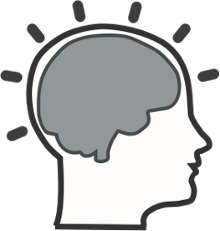

These are the courses on IT that I offer.
If you desire to book a course or to make a consultation, please contact me at info (at) pablomarinero (dot) com
For security reasons, especially to avoid SPAM, the email address has been altered. So, please replace the text (at) for @ and the text (dot) for . and, lastly, remove all blank spaces.
The duration of the courses is related to the most complete version of each one. All of them can be developed in a shorter version with the proper adaptation of the contents.
There are not fixed prices, they will be negotiated with each person or entity.
Security and privacy for children (training for adults)

The Internet is like the real world, but through a screen. It is full of wonderful things, but it has also some dangers.
Children learn how to use electronic devices such as mobile phones and computers almost before they are able to walk. But, do they learn how to surf the Internet in a safe way?
In real live we teach them to walk safely, to walk on the sidewalk and not on the road, to distrust of strangers, to not rely on people who give them things for anything, etc. Do we do the same with their lives on the Internet? Usually not.
We can not protect our children without knowing how that world they face through device screens works.
This course is intended for adults, in an easy an clear way, with the aim that they will be able to help their children to face the use of those technologies, that are not so new. From bullying problems through chatting and social networks whose origin could be in school up to the protection against the most unsuspected frauds.
Moreover, it is equally important to be aware of the digital identity we are creating of ourselves (or of our children). To do this is essential that we understand what are both privacy and digital identity.
We will deal with the following subjects:
- Cyberbulling.
- Grooming.
- Sexting.
- Privacy management and digital identity.
- Phising.
- Dangerous communities on-line.
- Tecnoaddictions.
- Protection against virus and frauds.
- Netiquette.
- Access to inappropriate content.
- Parental mediation.
- Previous knowledge requirements: low, every computer user can follow it without a problem.
- Duration: 20 hours.
Technology addiction: the drug of the XXI century

A new substance has flooded our society. It affects people of all ages, but not equally. There is no doubt that the youngest are the ones more vulnerable, the ones with more difficulties to evade the claws of this new poison.
What is it? The addictions to different types of technologies.
Technology is not bad in itself, but if it is misused it can be very harmful. Who is teaching adults how children should approach technology so that it was not harmful for them? Who is guiding youngsters through the discovery of the digital world?
Do you think that the sooner your children (nephews, nieces, grand children, friends, etc) discover the so called “new technologies” the better? Do you think that otherwise they will loose some kind of technological boat and they will be put at a disadvantage with the rest of the children of their generation?
Well, take a look at this:
The children of Steve Jobs, Bill Gates and other developers of globally extended technology go to schools in which there are no screens at all.
Senior executives of multinational technology companies settled in Silicon Valley send their children to an elite school which prides itself on not using technology in their classrooms. Those parents work in eBay, Google, Apple, Yahoo y Hewlett-Packard. And their children has never used Google… They write with paper and pencil and their teachers use a traditional blackboard. There is not a screen in the whole school and the school discourages its use at home.
The argument? Computers prevent critical thinking, dehumanize the learning process, the human interaction and they shorten the attention time of the students.
In a nutshell, they know how addictive and harmful are the technologies they develop and they do not want their children to be exposed to them.
Why your children can not have an education of the same quality? Has the most productive education to be reserved to a very few privileged people?
This course will show you what are the features of our behaviour that make us so susceptible to became addicted to technology. In addition, we will study the different features of additive technologies.
Finally, we will analyze how should we use technology (taking into account the functioning of the addictions) in order to be able to enjoy its positive side and avoid its most negative and toxic side.
- Previous knowledge requirements: there are not knowledge requirements.
- Duration: 8 hours.
Security and privacy on the Internet

How to protect your computer and your personal information.
Most of the computer users have never been taught basic notions on how to use a computer with a minimum level of security. In fact, people usually have bad habits which endanger the security of their computers, and therefore the security of the information which is stored in them. This is specially dangerous in the case of the employees of a company. And we should avoid this kind of problems at home, too.
Correcting those bad habits and changing them into good habits is easy, everybody can do it, it's just a question of learning.
This course will show you the threats we have to deal with when we use a computer and surf the web. You will learn how we can defend ourselves from those threats through simple rules and common sense, what tools we have on hand and which of them are the most suitable for each case.
You will also learn to value the importance of privacy. It is said that digital information is the gold of the 21st century. We will see how most of the programs which are widely used on the Internet (email, etc) are not respectful with users’ privacy.
We will see what is behind the data market and also what programs and services we can use in order to keep doing everything we do now, without risking our privacy.
- Previous knowledge requirements: low, every computer user can follow it without a problem.
- Duration: 20 hours.
Security and Privacy applied to Social Networks

Protect the access to your social networks and learn how to control your privacy.
There are many different social networks.
In all of them you can decide the level of security you want to manage. For this purpose, we will study different options in order to protect the access to our social networks' accounts in the right way.
But, did you know that not all social networks are the same? Concerning security they are not so different, but if we think about privacy then the differences become much more important.
In this course we will learn how privacy works on different social networks (the ones the participants use) and we will also know other social networks that maybe you don't know and which are indeed respectful with the user's privacy. It will depend on you which ones to use.
We share our complete life on social networks, do you want to learn how to protect your information?
- Previous knowledge requirements: low, every computer user can follow it without a problem.
- Duration: 15 hours.
Free Software

During this course you will can learn how to use Free Software. This course is divided in two modules which can be done together or not.
Module 1 refers to the use of a GNU/Linux operative system, while module 2 refers to the use of free programs. The second module can be developed on how to use free programs on a Windows operative system (there are many free programs with a windows version) as well as on a GNU/Linux system.
- MODULE 1: you will deal with the use of GNU/Linux like operative system such s as Ubuntu, LinuxMint, Trisquel, etc. They are completely free (in a wider sense than free of cost) operative systems, much more user-friendly than Windows systems (contrary to popular belief) as well as more secure. They are really interesting operative systems for people who are bored with Windows complications and also for those who want to learn the use of an operative system for the first time.
- Previous knowledge requirements: no previous knowledge is required.
- Duration: 10 hours.
- MODULE 2: this module is about the use of free programs. Some examples are: Mozilla Firefox, LibreOffice, GIMP, Mozilla Thunderbird, Telegram, OpenShot, etc. And, of course, the contents of the module can be adapted to the participants’ necessities (and therefore the duration of the module). This module can be carried out on Windows systems (which is an interesting first step in the migrating process towards the use of free programs) as well as on GNU/Linux systems.
- Previous knowledge requirements: no previous knowledge is required.
- Duration: the number of hours depends on the programs that are going to be used.
Move your mind!

Do you like puzzles and games which require a little bit of ingenuity?
You will use educational programs and games in this course, which require different skills such as: spatial vision, memory, logical reasoning, mathematical calculations, etc.
The course is thought for groups of children as well as for groups of adults who want to exercise their abilities. In the courses carried out previously with adults the experience has been very good. Although at the beginning they hesitated over whether they could follow the course properly, right afterwards they began to enjoy the games. The results have been really good in the case of children groups as well. In both cases some students have asked me for the games to practice at home. They are so entertaining!
All programs employed in this course are Free Software, thus there is no restriction to continue using them once the course is finished.
The use of educational resources for learning programing, is also available in the scope of this course. This matter concerns educational programs which are focused on making easier the learning of programing. For this reason, this part, is optional.
- Previous knowledge requirements: low, every computer user can follow it without a problem.
- Duration: 15 hours.
If you want more information or book a course please send me an email to info (at) pablomarinero (dot) com
For security reasons, especially to avoid SPAM, the email address has been altered. So, please replace the text (at) for @ and the text (dot) for . and, lastly, remove all blank spaces.
Sources of the external pictures:
 Watson and the Shark at openclipart.org
Watson and the Shark at openclipart.org
 School in fall at openclipart.org
School in fall at openclipart.org
 Books and a Magic Lamp at openclipart.org
Books and a Magic Lamp at openclipart.org
 Tango applications internet at openclipart.org
Tango applications internet at openclipart.org
 shokunin modern touch phone mobile at openclipart.org
shokunin modern touch phone mobile at openclipart.org
 Syringe Silhouette at openclipart.org
Syringe Silhouette at openclipart.org







